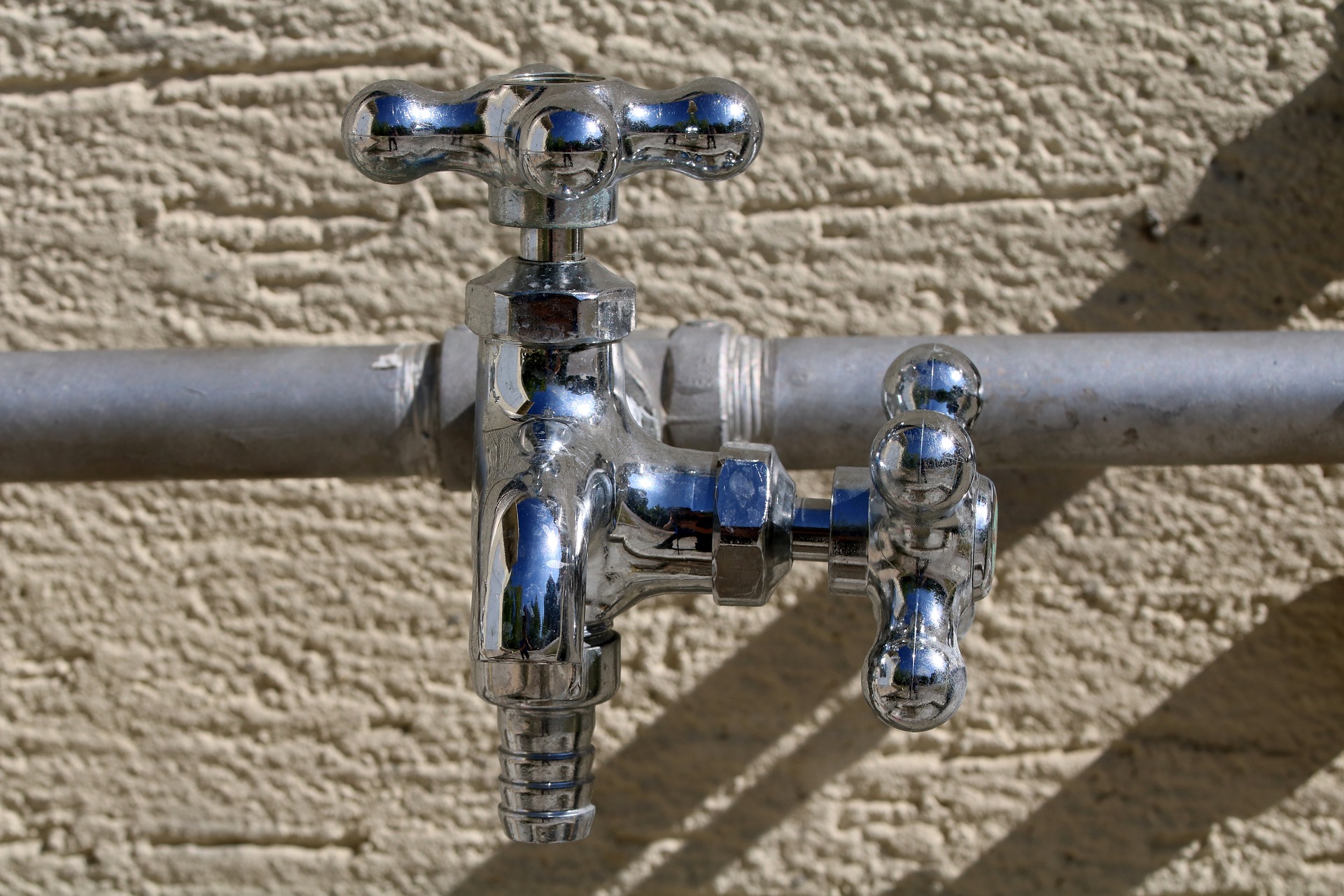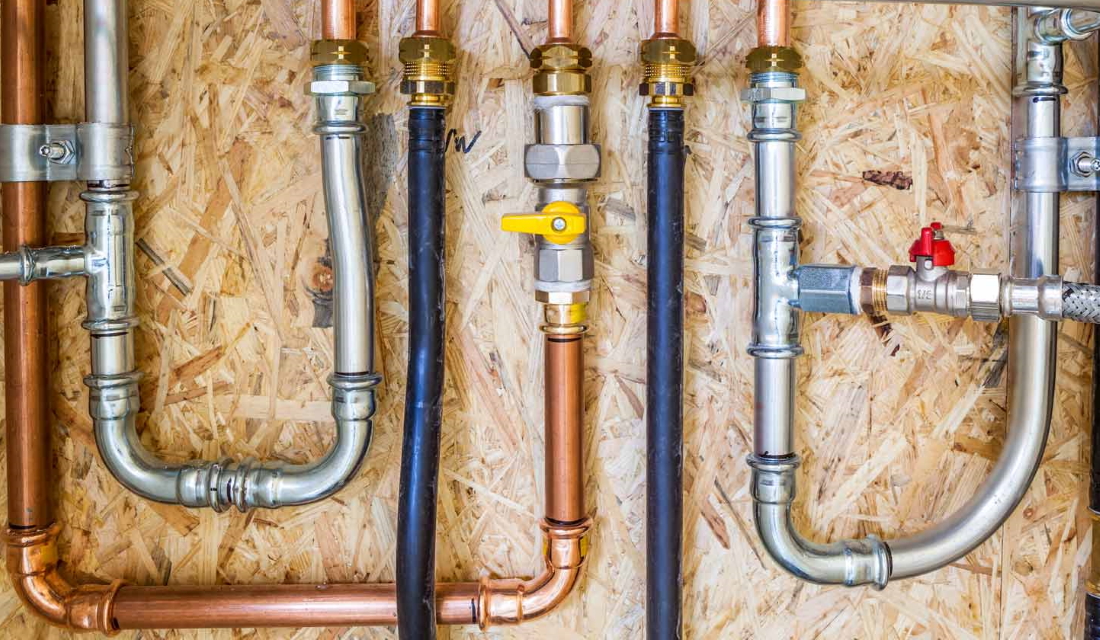What are your ideas on Understanding Water Hammer And How To Stop It?

Introduction
Have you ever before turned off a tap and heard a loud bang or knocking sound coming from your pipelines? That distressing sound, typically referred to as a sudden thud or clunk, is referred to as water hammer. It's not just a frustrating quirk of older homes-- water hammer can take place anywhere, and if left uncontrolled, it can result in even more substantial plumbing issues. In this write-up, we'll demystify water hammer, explore its reasons, and discuss useful means to fix and stop it. Think of it as your ultimate guide to taming those unruly pipes once and for all.
Sudden Shutoff Closure
Promptly shutting down a tap or home appliance can develop a sudden water circulation stop. Dishwashers and washing devices, which have automated valves, are typically offenders in creating these unforeseen stops.
Improper Pipeline Sizing
Pipelines that are too little for the amount of water moving via them can enhance the chance of water hammer. Limited space suggests higher rate, and higher rate means more powerful stress rises.
High Water Pressure
Excessive water pressure not just wastes water and cash but also amplifies the impacts of water hammer. The even more force behind the flow, the tougher it hits when forced to quit.
Why is Water Hammer a Problem?
You might ask yourself, "Is water hammer just a sound issue?" It's more than that. While the audio can be aggravating, the real trouble lies beneath the surface.
The Science Behind Water Hammer
Water hammer is fundamentally concerning kinetic energy. When water moves through pipes, it carries momentum. If something interrupts that motion-- like a shutoff closing also quickly-- this energy changes into a pressure rise. Pipelines, fittings, and shutoffs experience this spike in pressure, commonly leading to that banging sound you dread.
Common Causes of Water Hammer
Understanding the origin of water hammer is the very first step to fixing it.
What is Water Hammer?
Water hammer is a shockwave of pressure that takes place within your pipes when water circulation stops or transforms direction suddenly. Picture a group of joggers running down a narrow hallway, just to have a door bang closed at the end. The sudden quit causes a domino effect, causing a crash of bodies. In your plumbing system, water imitates those runners, and when it's required to quit suddenly, it produces pressure waves that travel via the pipes.
Noisy Pipes and Home Disturbances
The most obvious trouble is the noise. Hearing clunks and bangs every time you do washing or run the dish washer can interfere with the peace in your home. It might not seem like a big deal initially, however over time, it can wear on your nerves.
Potential Damage to Plumbing System
Water hammer puts tension on valves, joints, and fittings. Repetitive stress surges can damage links, trigger leaks, and even cause pipe ruptureds-- a costly and troublesome situation nobody intends to face.
Long-Term Wear and Tear
With time, persistent water hammer can cause more regular repairs, premature wear on parts, and a shortened life expectancy for your pipes system. Think about it as small stress and anxiety collecting right into a larger problem.
Identifying Water Embed Your Home
Before you can fix an issue, you require to validate it's there. So, exactly how do you understand if you're managing water hammer?
Dead Giveaways and Sounds
Listen for knocking or pounding noises when switching off faucets or running home appliances. If the noise seems to find from within the walls, there's a great chance water hammer is responsible.
Performing a Simple Evaluation
Try turning taps on and off at different speeds. If you notice the sound just accompanies certain fixtures or at certain times, you've gathered hints about where and when water hammer is occurring.
Short-Term Fixes to Control Water Hammer
If water hammer is driving you up the wall, there are prompt actions you can take.
Adjusting Water Stress
If your home's water pressure is established expensive, consider mounting a stress regulator or changing the existing one. Decreasing the pressure can decrease the intensity of those shockwaves.
Safeguarding Loose Pipelines
Pipes that aren't effectively protected can amplify water hammer noises. Adding pipeline straps or cushioning products can aid stabilize them and avoid them from rattling against surface areas.
Using Air Chambers or Arrestors
Air chambers are straightforward gadgets that catch a pocket of air in a vertical pipe. This air works as a pillow, soaking up the stress surge. If you do not have them, setting up water hammer arrestors can attain a similar result.
Long-Term Solutions and Upgrades
If you're trying to find more irreversible fixes, it could be time to think about some upgrades.
Putting Up Water Hammer Arrestors
These devices, developed specifically to counter water hammer, can be put near fixtures or home appliances. They contain a piston and chamber that absorb pressure adjustments before they spread throughout your system.
Establishing Your Comfort Level
If you're handy, you might be able to handle fundamental repairs like mounting arrestors or readjusting pressure. But if you're uncertain or if the issue persists, there's no embarassment in looking for professional aid.
When to Call a Plumber
If your efforts at repairing water hammer fall short or if you believe covert problems within your wall surfaces, a certified plumbing professional can detect the issue properly and recommend long lasting solutions.
Protecting Against Water Hammer from the beginning
The best way to handle water hammer is to avoid it before it starts.
Adding Expansion Tanks
A growth container attached to your water heater can help mitigate stress fluctuations triggered by thermal growth. By offering water a place to go when heated, you lower tension on pipes.
Upgrading Pipeline Materials
If you're intending remodellings or managing an older home, upgrading to more flexible piping materials, like PEX, can help reduce the danger of water hammer. These materials can soak up shock much better than inflexible pipelines.
Stabilizing Costs with Benefits
Keep in mind, the alternative-- pipe damage, leaks, and continuous nuisance-- can be even more costly in the long run. Think of these fixes as a financial investment in comfort and home worth.
Costs and Factors to consider
Investing in preventing or taking care of water hammer can save you cash in the long run.
Estimating Expenditures
The cost varies depending on the severity of the problem and the selected remedy. Straightforward fixes like including arrestors or pipeline supports may be reasonably low-cost, while more substantial upgrades can set you back even more.
Do it yourself vs. Specialist Assistance
Some property owners like a great DIY challenge, while others favor to leave plumbing problems to the pros.
Designing a Correct Plumbing Format
If you're developing a new home or undertaking major remodellings, consult a plumber regarding designing a layout that reduces sudden water flow modifications and consists of correct shock-absorbing components.
Regular Maintenance Checks
Just like your vehicle needs regular solution, so does your plumbing system. Regular checks for leaks, stress changes, and odd sounds can catch concerns early and stop water hammer from holding.
Verdict
Water hammer isn't simply an irritating noise; it's a signal that your pipes system requires focus. By understanding what creates it, taking prompt activity, and purchasing long-term options, you can guarantee your pipes remain tranquil and peaceful. Whether you choose an easy DIY strategy or call in a specialist, addressing water hammer is an action toward an extra calm and reliable home.
Understanding Water Hammer: Causes, Effects, and Effective Solutions
Water hammer is a common plumbing issue that often goes unnoticed until it becomes a significant problem. If you've ever heard a loud banging noise when you turn off a faucet or noticed your pipes making strange sounds, you may be experiencing water hammer. In this blog post, we will delve into what water hammer is, its causes, effects, and most importantly, how to prevent and stop it from wreaking havoc on your plumbing system.
What is Water Hammer?
Water hammer, also known as hydraulic shock, is a phenomenon that occurs when a sudden change in the flow of water within a plumbing system results in pressure fluctuations and shockwaves. This can lead to loud banging or knocking noises in your pipes, and over time, it can cause damage to pipes, joints, and fixtures.
Causes of Water Hammer
Quick Valve Closures: One of the primary causes of water hammer is the abrupt closing of valves, such as faucets, washing machines, or dishwashers. When water flow is suddenly stopped, the momentum of the flowing water creates pressure waves that travel through the pipes, causing the banging noise. High Water Velocity: Water traveling at high speeds through pipes can exacerbate water hammer. This is often the case in larger plumbing systems or systems with oversized pipes that allow water to flow too quickly. Long Pipe Lengths: Longer pipe lengths provide more room for pressure fluctuations to develop and intensify. The longer the distance for the pressure waves to travel, the more significant the water hammer effect can become. Effects of Water Hammer
Noise Pollution: The most obvious effect of water hammer is the loud banging or knocking noise that can disturb your household. These noises are not only irritating but can also signal potential damage to your plumbing system. Pipe Damage: Over time, the repeated stress from water hammer can weaken pipes and joints, leading to leaks, cracks, and even burst pipes. This can result in costly repairs and water damage to your property. Appliance Wear and Tear: Appliances like washing machines and dishwashers can suffer from accelerated wear and tear due to water hammer, leading to a shorter lifespan and more frequent breakdowns. Preventing and Mitigating Water Hammer
Install Water Hammer Arrestors: Water hammer arrestors are devices that absorb the shockwaves caused by water hammer, preventing them from traveling through the pipes and causing noise and damage. These can be installed at specific points in your plumbing system to effectively mitigate the issue. Adjust Water Pressure: High water pressure can contribute to water hammer. Consider installing a pressure reducing valve (PRV) to regulate the water pressure in your plumbing system and reduce the risk of water hammer. Slow Valve Closure: Whenever possible, avoid abruptly shutting off water valves. Instead, close valves gradually to reduce the momentum of the water flow and minimize pressure fluctuations. Install Air Chambers: Air chambers are vertical sections of pipes that contain air, which acts as a cushion to absorb the shockwaves created by water hammer. Regular maintenance is essential to ensure the air chambers remain effective.

As an avid reader on What Is Water Hammer & How Do You Stop It?, I think sharing that excerpt was worthwhile. Loved our posting? Please quickly share it. Help someone else check it out. We treasure reading our article about .
Book-Now